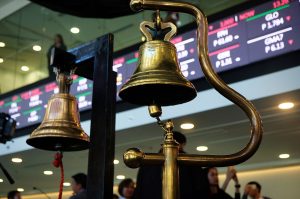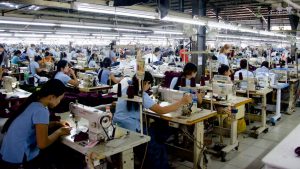THE PHILIPPINES needs to ramp up investment in agriculture and fisheries to dampen the impact of heightened tensions with China, the National Economic and Development Authority (NEDA) said.
“We are linked with China economically through our supply chain directly (and) indirectly through the effects of any tensions in our region,” NEDA Secretary Arsenio M. Balisacan told reporters on the sidelines of a forum.
“One of the primary tasks of our government or administration is to improve our food security. And that’s not just fish, it’s also vegetables, fruit, rice, and all major commodities. That means that we really have to invest in the areas that will raise productivity,” he said.
When asked about the possibility of the Philippines reducing its import dependence on China for its supply of fish, Mr. Balisacan said: “it’s hard to say, because our population is also growing rapidly.”
Last week, a Navy sailor lost a thumb after his boat was rammed by Chinese personnel seeking to block Philippine access to an outpost in the West Philippine Sea, according to the military. The Chinese Coast Guard also disarmed and seized rifles from Philippine personnel.
During the forum, Mr. Balisacan said tensions with China are not the main factor behind weak foreign direct investment (FDI) inflows, citing a decline in FDI globally.
“The share of FDI from China is quite small. The high was 4.4% in 2015 to 2019. It fell to 0.9% in the last three years, but… I don’t think that we can directly attribute to that, because overall, global FDI (and) Asia-Pacific FDI have been falling,” Mr. Balisacan said.
Loans from China also remain small, with the Philippines seeking to expand its sources of funding, he added.
“Official development assistance (ODA) from China is also very small… it’s about only 5% of the total ODA we receive from other countries,” he said.
Last year, the government withdrew from loan negotiations with China for three major railway projects valued at around P228 billion as tensions worsened over the dispute over territorial waters.
“The area where we are most exposed to China is in trade,” Mr. Balisacan said. “Whether (we) like it or not, we are all linked to the same global supply chain.”
He said an easing in global trade restrictions would help boost the Philippines’ growth prospects.
“Our economic performance in recent years and the economic outlook in the near and medium term are very robust, keeping us one of the fastest-growing economies in the region. Still, if the global economy is better, if trade restrictions are reduced, then economic growth will be even faster,” he told reporters.
The government is aiming for 6-7% gross domestic product growth this year. — Beatriz Marie D. Cruz





